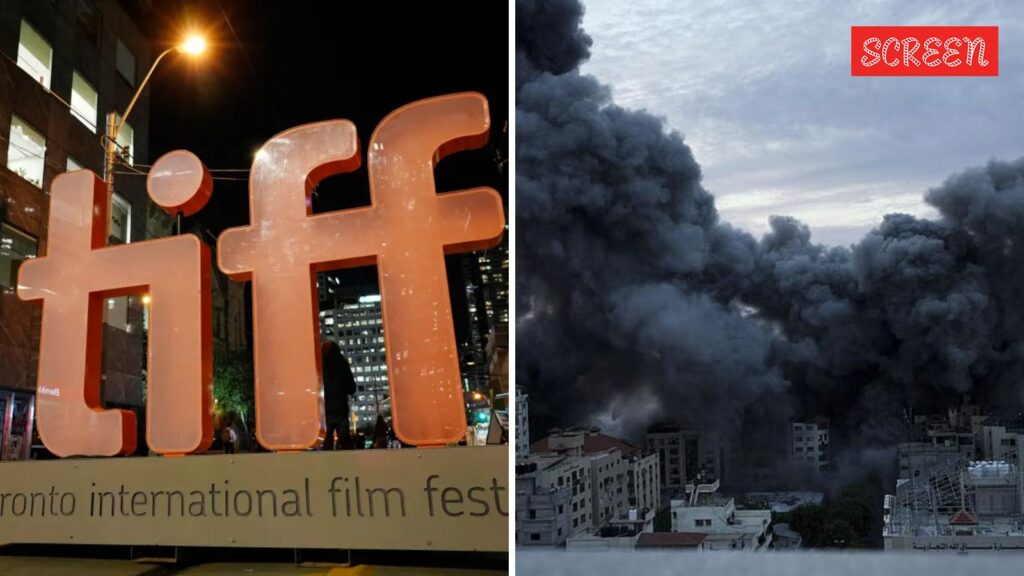970x125
The Toronto International Film Festival (TIFF) has dropped a new documentary about the October 7 Hamas massacre from its lineup, claiming the filmmakers didn’t secure the “legal rights” to use footage the terrorists shot themselves while carrying brutal attacks, according to the New York Post. Multiple sources also told the outlet TIFF feared anti-Israel protests could disrupt the September 4–14 festival, an annual event that draws a heavy lineup of Hollywood A-listers.
970x125
TIFF drops the Hamas massacre documentary
The film, The Road Between Us: The Ultimate Rescue, directed by Canadian filmmaker Barry Avrich, follows the story of retired IDF Major General Noam Tibon. Using real footage, it shows Tibon on the morning of October 7 driving straight into the battlefield to save his son, journalist Amir Tibon, his daughter-in-law, and two granddaughters trapped in their home at Kibbutz Nahal Oz. That day, he also saved survivors from the Nova music festival and helped wounded Israeli soldiers. Hamas killed or kidnapped more than a quarter of the kibbutz’s 400 residents in the attack. In total, 1,200 people were murdered and 251 taken hostage.
Also read: Jimmy Fallon mocks Donald Trump’s tariffs on India; jokes about Putin meeting POTUS: ‘Building a ballroom to meet Sydney Sweeney’
TIFF says the film “did not meet certain requirements” to screen at the prestigious annual festival, specifically, legal clearance for all clips used. The problem is that some of those clips came straight from body cameras Hamas terrorists wore while brutally killing 1,200 people, abducting over 250, raping women, and mutilating bodies. Festival organisers say the decision was made keeping in mind the “risk management” and avoiding lawsuits tied to “sensitive subject matter.” Filmmakers who were left stunned over the decision, including Barry Avrich, slammed the move and TIFF. In a statement to Deadline, Avrich said TIFF “defied its mission and censored its own programming by refusing this film.”
The filmmakers say they bent to meet TIFF’s demands and even changed the film’s title (from Out of Nowhere to The Road Between Us). Later, they even got errors and omissions insurance naming TIFF as the insured and submitted security plans. Still, the organisers kept asking for more: proof of indemnification, extra documents, and specific permission to use Hamas-shot footage. On August 6, TIFF’s lawyer told them to submit final proof. On August 8, the festival scheduled another review screening. Then, on August 11, EO Cameron Bailey requested the filmmakers to withdraw. When they refused, the festival officially removed the movie the next day.
Also read: Who is Hamas’s best friend? The answer will surprise you
Barry Avrich’s team called the move censorship: “A film festival lays out the feast, and the audience decides what they will or won’t see. We remain defiant, we will release the film.” Noam Tibon called TIFF’s reasoning “absurd and bizarre,” accusing them of backing out over fear of threats and protests. The Canadian Centre for Jewish and Israeli Affairs slammed the move as letting “a small mob of extremists” dictate what films Canadians can watch, saying it makes Toronto’s Jewish community feel unwelcome.
Story continues below this ad
Line producer Talia Harris Ram claims that since the videos were broadcast live by Hamas on October 7, they are in public domain and free to use. The film even had insurance to protect TIFF from lawsuits. The story has already been featured on 60 Minutes, and Fauda creators Avi Issacharoff and Lior Raz are working on a dramatised version. Critics of TIFF’s move say it’s outrageous to demand permission from a terrorist group to use evidence of its own crimes. They argue it gives Hamas power over how history is told, risks erasing victims’ stories, and hands propaganda points to those who want the truth buried.
970x125

